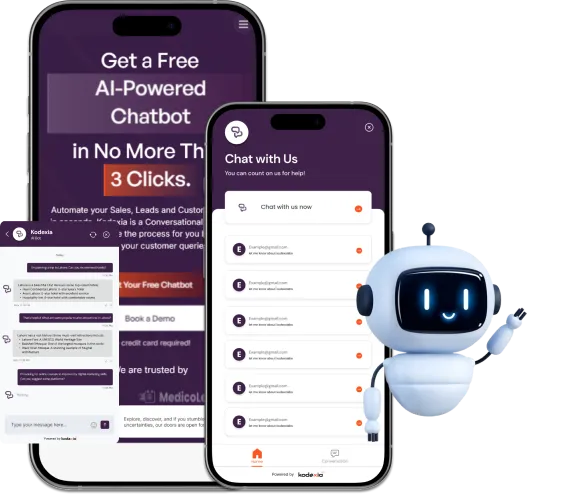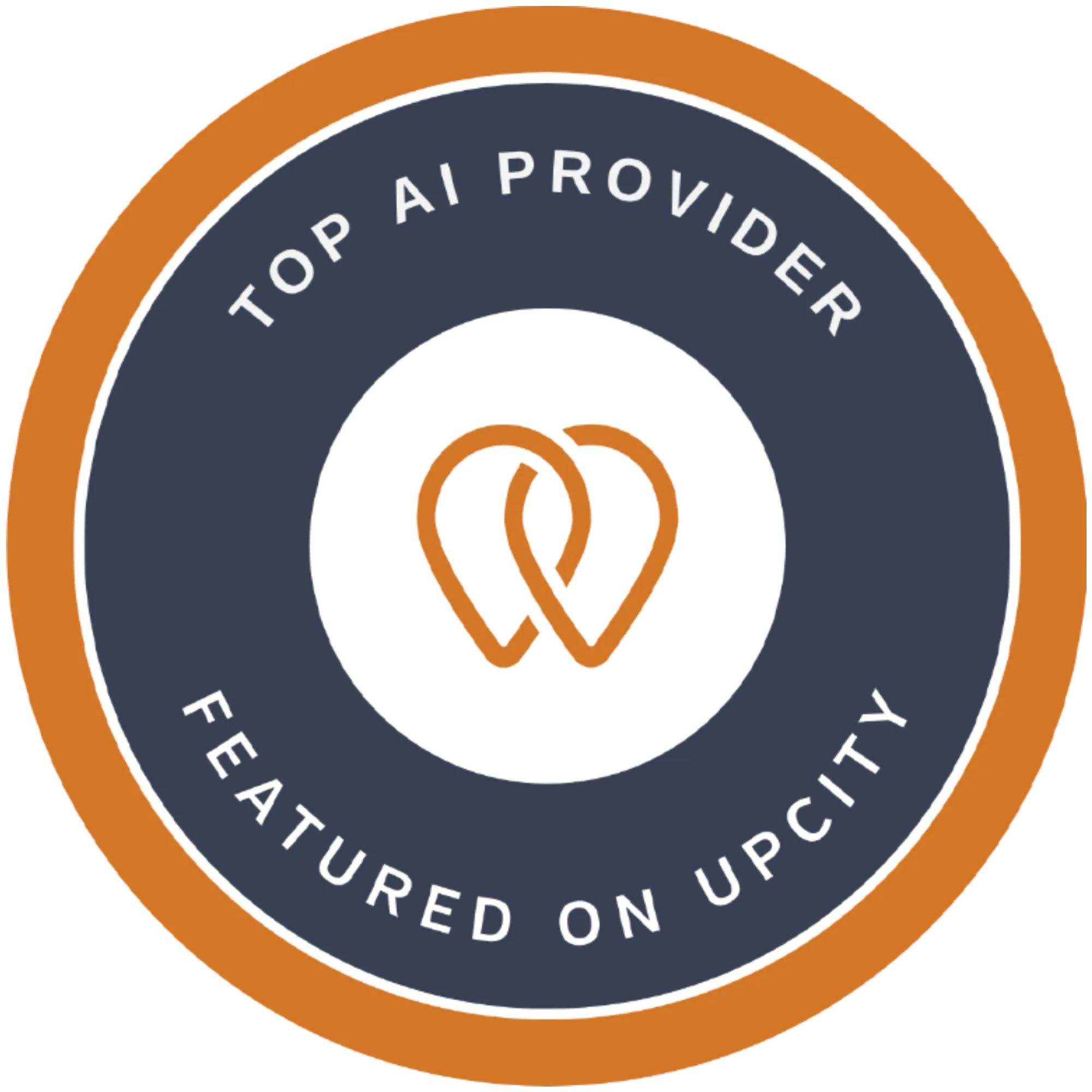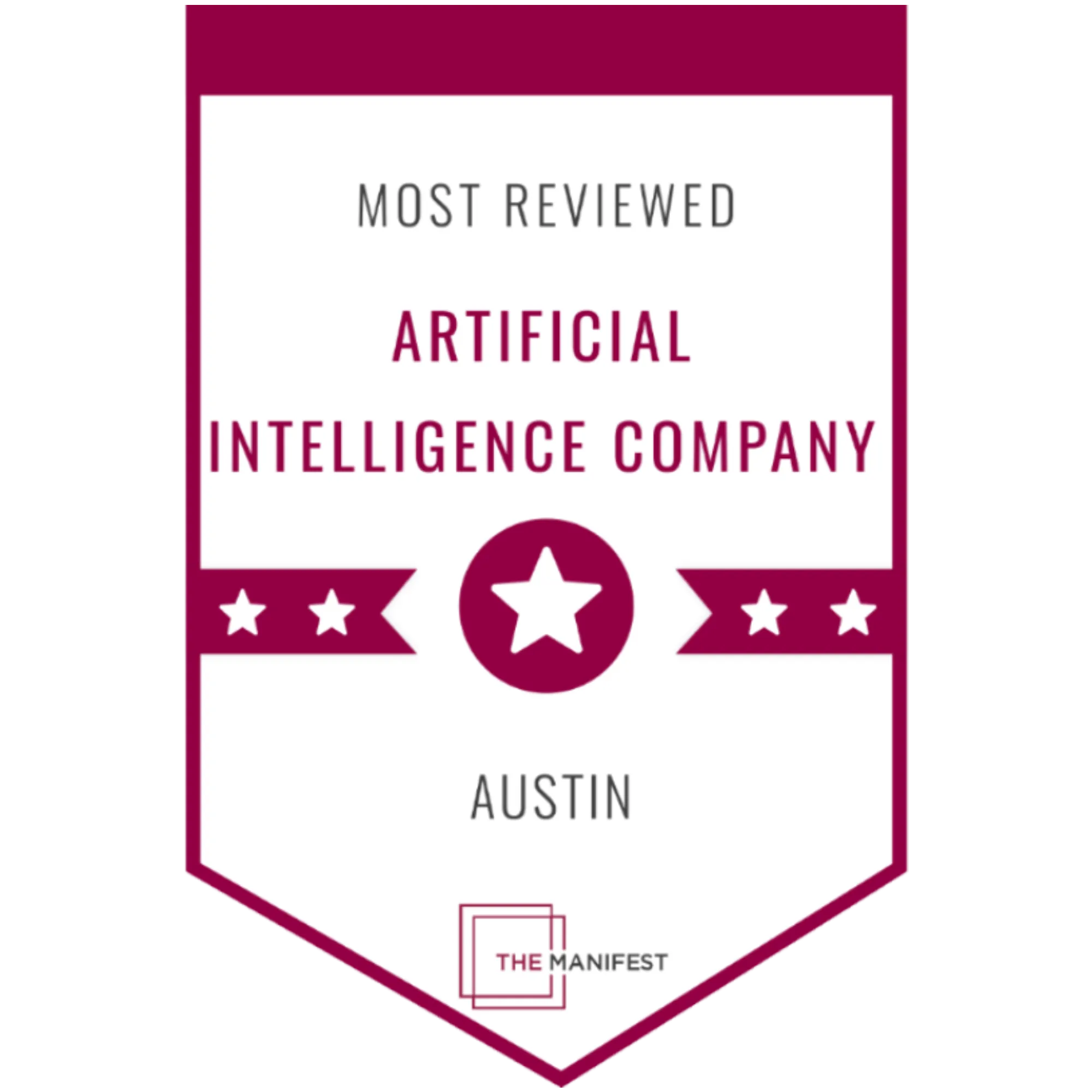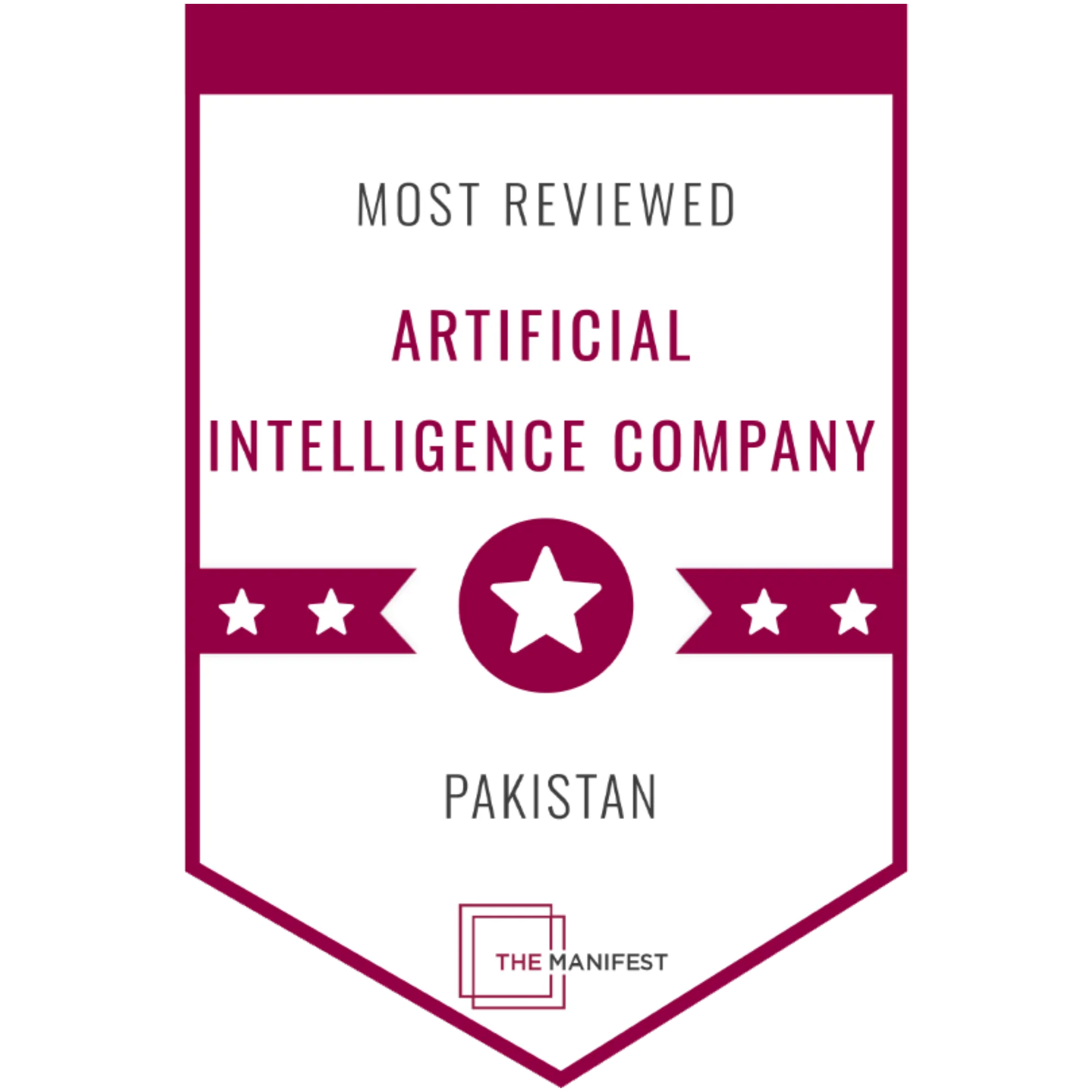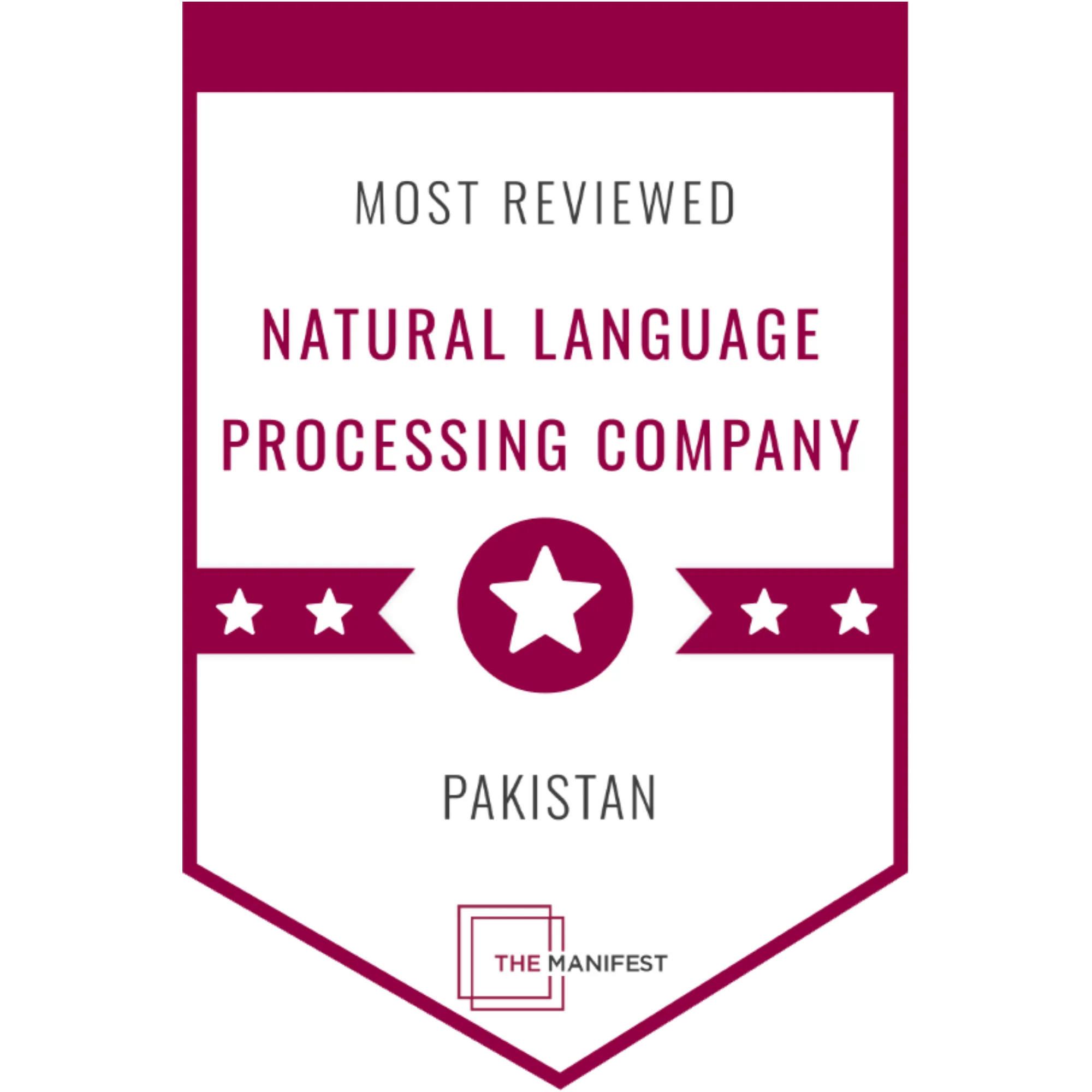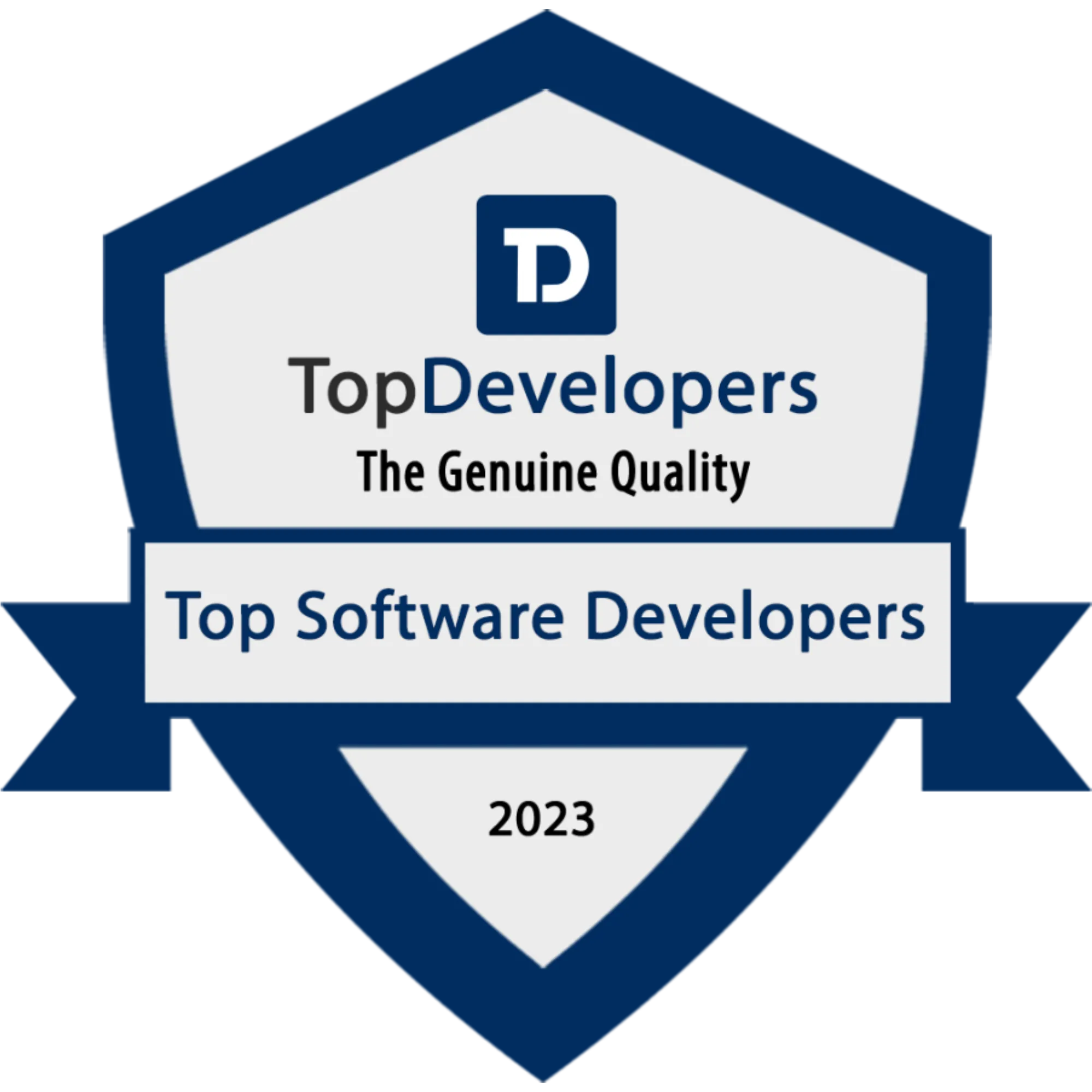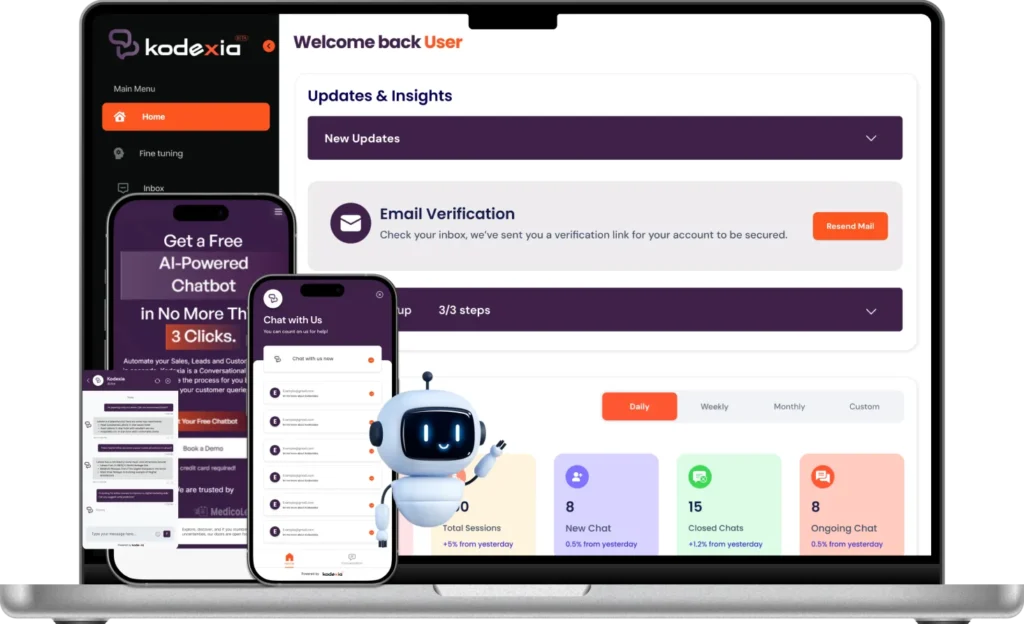Generative AI in Healthcare – Transforming the Future of AI in Healthcare for a Healthier You
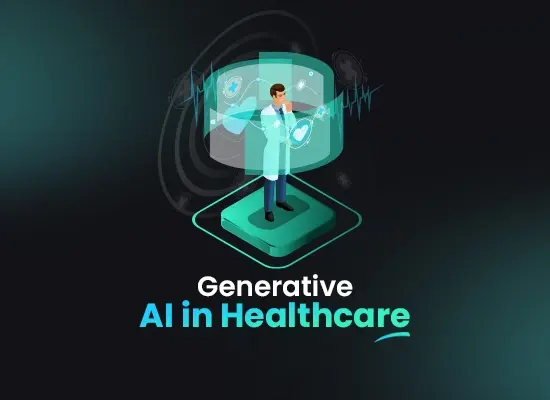
Contents
Generative AI, a powerful branch of artificial intelligence with the ability to create entirely new data, is transforming the healthcare landscape. By using machine learning algorithms, this technology holds immense potential to improve patient care, streamline processes, and even accelerate medical discovery. From automating tasks to generating personalised treatment plans, generative AI is poised to revolutionise how we approach healthcare.
What is the Role of Generative AI in Healthcare?
Artificial intelligence (AI) is rapidly transforming the healthcare landscape, with generative AI emerging as a powerful tool with the potential to revolutionise everything from diagnosis and treatment to drug discovery and administrative tasks. With Machine Learning in Healthcare for some time, generative AI takes things a step further. Unlike ML, which focuses on analysing existing data to learn patterns, generative AI can create entirely new, yet realistic, data. This opens up a plethora of possibilities in the realm of healthcare.
The benefits of AI in healthcare are vast and well-documented. AI in healthcare examples include automating repetitive tasks like data entry and appointment scheduling, freeing up valuable time for medical professionals. Although some tasks are still better handled by humans—such as those provided by a medical transcription services company— AI can analyse vast amounts of medical data to identify patterns and trends that might be missed by the human eye, leading to more accurate diagnoses and personalised treatment plans.
Generative AI in healthcare builds upon these existing applications by introducing the ability to generate novel data. This can take many forms. For instance, generative AI can create synthetic medical images to train other AI models or fill in missing data in existing scans. It can also be used to generate realistic simulations of diseases, allowing doctors to better understand how illnesses progress and test potential treatment options in a virtual environment. This not only reduces risks associated with clinical trials but also accelerates the drug discovery process.
The future of AI in healthcare is undeniably intertwined with generative AI. As generative AI technology continues to develop, we can expect even more transformative applications to emerge. Imagine a future where AI can generate personalised drug molecules tailored to a patient’s specific genetic makeup, or one where AI-powered chatbots provide real-time health advice and emotional support to patients. The possibilities are truly limitless.
However, it’s important to remember that AI development, like any powerful technology, comes with its own set of challenges. Ensuring the accuracy and reliability of generated data, addressing ethical concerns around bias, and integrating generative AI tools seamlessly into existing healthcare workflows are all crucial issues that need to be addressed. Nevertheless, the potential benefits of generative AI in healthcare are undeniable. As we move forward, responsible development and implementation will be key to unlocking the full potential of this revolutionary technology and shaping a brighter future for healthcare.
Seamless Collaboration | Cost-Efficient Solutions | Faster Time-to-Market

Why Do Businesses Need to Use Generative AI in Healthcare?
The future of AI in healthcare is brimming with possibilities, and generative AI stands out as a revolutionary force. This subfield of AI focuses on creating entirely new data, as opposed to simply analysing existing information. This unique capability unlocks a treasure trove of benefits for businesses in the healthcare sector.
While traditional AI in healthcare excels at analysing medical images, patient data, and research papers to identify patterns and trends, generative AI takes things a step further. Generative AI in healthcare can, for instance, create synthetic medical data. This anonymized data, mimicking real-world information, proves invaluable for researchers and developers. Imagine training new ML algorithms in healthcare without privacy concerns or limitations due to small datasets. Generative AI bridges this gap, accelerating advancements in drug discovery, treatment personalization, and even clinical trial design.
Beyond data creation, generative AI in healthcare offers a plethora of advantages. AI in healthcare examples include generating high-resolution medical images from blurry scans, allowing for more accurate diagnoses. Additionally, generative AI can automate tasks like patient record-keeping and information management, freeing up valuable time for medical professionals. This translates to significant cost savings for healthcare businesses while improving overall efficiency.
The benefits of AI in healthcare extend far beyond the administrative realm. Generative AI can personalise patient communication by creating educational materials tailored to individual needs and literacy levels. This fosters better patient understanding and engagement, leading to improved health outcomes. As the technology matures, generative AI has the potential to assist in early disease detection and even treatment recommendations, all while preserving patient privacy.
In conclusion, generative AI in healthcare presents a game-changing opportunity for businesses. By leveraging its unique data creation capabilities and automation potential, healthcare organisations can streamline operations, personalise patient care, and accelerate research and development. As the future of AI in healthcare unfolds, AI and Machine Learning Development stands poised to become a cornerstone of a more efficient, effective, and patient-centric healthcare system.
Benefits of AI in Healthcare:
The future of AI in healthcare is brimming with possibilities. Artificial intelligence (AI) is rapidly transforming the medical landscape, offering a plethora of benefits that are fundamentally changing how we diagnose, treat, and manage health. Machine learning (ML), a powerful subset of AI, is at the forefront of this revolution, empowering computers to analyse vast amounts of medical data and identify patterns that might escape the human eye. Here are 10 compelling benefits of AI in healthcare:
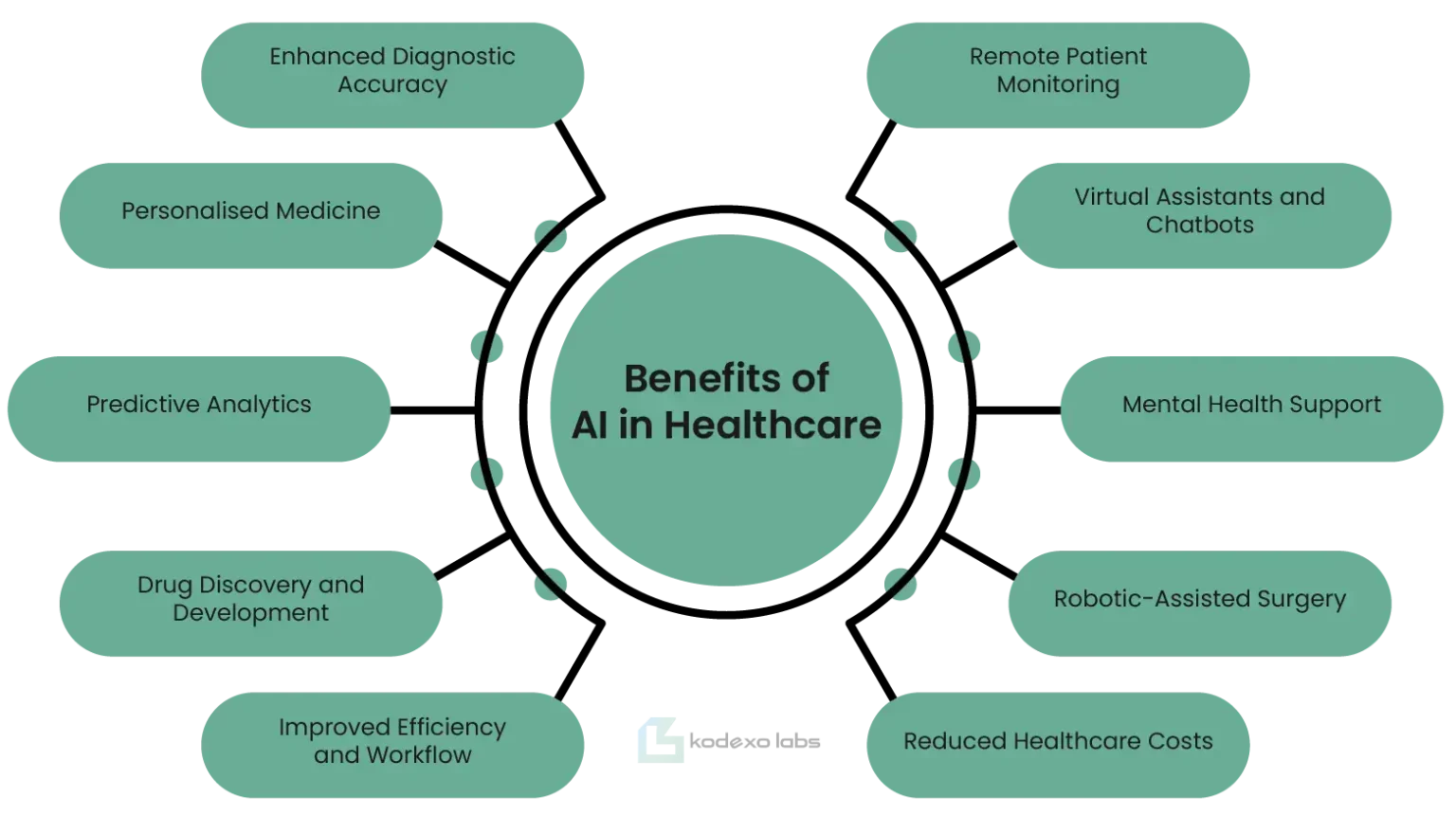
1- Enhanced Diagnostic Accuracy:
AI algorithms can analyse medical images, such as X-rays and MRIs, with exceptional precision. This translates to earlier and more accurate diagnoses, allowing for timely intervention and improved patient outcomes.
2- Personalised Medicine:
ML algorithms can sift through a patient’s medical history, genetic makeup, and lifestyle data to create personalised treatment plans. This tailored approach to healthcare holds immense promise for improving treatment efficacy and reducing side effects.
3- Predictive Analytics:
AI can analyse vast datasets to identify patients at high risk of developing certain diseases. This allows for preventive measures to be taken, potentially mitigating the severity of the illness or even preventing its onset altogether.
4- Drug Discovery and Development:
Generative AI, a cutting-edge branch of AI, is being explored in healthcare to design new drugs and therapies. By analysing vast molecular structures, generative AI can accelerate drug discovery and development, leading to faster and more effective treatments.
5- Improved Efficiency and Workflow:
AI can automate administrative tasks such as scheduling appointments, managing patient records, and generating reports. This frees up valuable time for healthcare professionals to focus on patient care.
6- Remote Patient Monitoring:
AI-powered wearable devices and sensors can continuously monitor a patient’s health vitals, allowing for remote monitoring and early detection of potential health issues.
7- Virtual Assistants and Chatbots:
AI-powered virtual assistants and chatbots can provide patients with 24/7 access to information and support, answer basic health questions, and even schedule appointments.
8- Mental Health Support:
AI-powered chatbots can provide mental health support and resources to patients, particularly those in underserved areas or struggling with social isolation.
9- Robotic-Assisted Surgery:
AI is playing an increasingly important role in robotic-assisted surgery, enhancing precision, minimising invasiveness, and improving surgical outcomes.
10- Reduced Healthcare Costs:
By enabling earlier diagnoses, personalised treatments, and improved efficiency, AI has the potential to significantly reduce healthcare costs.
These are just a few examples of how AI in healthcare is transforming the medical field. As AI continues to evolve, the future of healthcare promises to be even more personalised, efficient, and effective. However, it’s important to remember that AI is a tool meant to augment human expertise, not replace it. The future of healthcare lies in the powerful collaboration between humans and AI.
What is the Role of Machine Learning (ML) in Healthcare?
Machine learning (ML) is rapidly transforming the healthcare landscape, holding immense potential for the future of AI in healthcare. By leveraging vast amounts of medical data, Machine Learning development can identify patterns and trends that would be difficult, if not impossible, for humans to see. This capability is leading to a new era of data-driven medicine, with applications that span disease diagnosis, treatment optimization, and even drug discovery.
One of the most exciting areas of Machine Learning in Healthcare is its ability to analyse medical images. Algorithms can be trained to detect abnormalities in X-rays, mammograms, and other scans with remarkable accuracy. This can not only assist doctors in making diagnoses but also allow for earlier detection of diseases, potentially leading to better patient outcomes. Imagine a future where AI in healthcare examples include intelligent systems routinely flagging suspicious lesions on scans, prompting further investigation and potentially saving lives.
Beyond diagnostics, ML is being used to predict patient outcomes and personalise treatment plans. By analysing a patient’s medical history, genetics, and lifestyle factors, ML algorithms can estimate their risk of developing certain diseases or how they might respond to different medications. This information can empower doctors to tailor treatment plans to each individual patient, a practice known as personalised medicine through AI in Medicine.
Generative AI in healthcare is another emerging field with significant promise. These AI models can be used to generate synthetic medical data, such as realistic anonymized patient records. This data can then be used to train other ML algorithms without compromising patient privacy. Additionally, generative AI has the potential to develop new drugs and therapies by simulating complex biological processes.
The benefits of AI in healthcare are numerous. ML can improve the efficiency and accuracy of diagnoses, optimise treatment plans, and personalise care for individual patients. It can also lead to earlier disease detection, improved drug discovery, and a reduction in healthcare costs. However, it’s important to remember that ML is a tool, and like any tool, it needs to be used responsibly. Ethical considerations, data privacy, and ensuring that AI complements rather than replaces human expertise remain crucial aspects of navigating the future of AI in healthcare.
How to Integrate Generative AI in Healthcare to Boost your Business?
The future of AI in healthcare is brimming with possibilities, and generative AI stands at the forefront of this exciting revolution. Generative AI, a subfield of Machine Learning in Healthcare, possesses the remarkable ability to create entirely new data – think of it as a creative engine for the medical field. This innovation holds immense potential to transform healthcare delivery, improve patient outcomes, and ultimately boost your business.
While traditional AI in healthcare examples often focus on analysing existing data for diagnostics or treatment recommendations, generative AI development takes a different approach. Imagine AI generating personalised treatment plans, crafting targeted medical reports, or even designing new drugs based on patient-specific factors. These are just a few glimpses into the vast potential of generative AI in healthcare.
The benefits of AI in healthcare, particularly generative AI, are undeniable. It can streamline administrative tasks, personalise patient experiences, and accelerate research and development. By automating repetitive tasks like report generation, generative AI frees up valuable time for healthcare industry professionals to focus on patient care. Additionally, it can personalise communication with patients by creating targeted educational materials or medication reminders. In the realm of research and development, generative AI can accelerate drug discovery by simulating complex biological processes and identifying promising new drug candidates. So, how can you integrate generative AI into your healthcare business and reap the rewards? Here’s a roadmap to get you started in 8 steps:

1- Identify Needs:
First, assess your current operations and pinpoint areas where generative AI could offer the most significant benefits. Are you struggling with overwhelming administrative tasks? Do you see an opportunity to personalise patient communication?
2- Explore Use Cases:
Research the current applications of generative AI in healthcare. Examples abound, from AI-powered chatbots that answer patient queries to virtual assistants that streamline scheduling and appointment confirmations.
3- Start Small:
Don’t jump headfirst into a large-scale implementation. Begin with a pilot project targeting a specific need. This allows you to test the technology, assess its effectiveness, and refine your approach.
4- Prioritise Data Security:
As with any AI integration, data security is paramount. Ensure your chosen generative AI solution adheres to strict data privacy regulations and implements robust security measures.
5- Monitor and Adapt:
Don’t let your implementation become stagnant. Continuously monitor the performance of your generative AI solution and adapt it based on real-world data and user feedback.
6- Seek Expert Guidance:
Partner with AI specialists who understand the nuances of generative AI in healthcare. Their expertise will be invaluable in navigating the technical aspects and maximising the technology’s potential.
7- Train Your Staff:
Equip your team with the knowledge and skills necessary to leverage generative AI effectively. This fosters a culture of innovation and ensures seamless integration with existing workflows.
8- Embrace Transparency:
Be transparent with patients about your use of generative AI. Explain how it benefits them and emphasise your commitment to data security and ethical practices.
By following these steps, you can use the power of generative AI integration to propel your healthcare business forward. As the future of AI in healthcare unfolds, generative AI stands poised to become a game-changer, and those who embrace this technology will be well-positioned for success.
AI in Healthcare Examples Around the Globe:
The future of AI in healthcare is brimming with possibilities. Artificial intelligence (AI) is rapidly transforming the medical landscape, offering a plethora of benefits that can improve patient outcomes, streamline processes, and empower healthcare professionals. Machine learning (ML), a subfield of AI, is at the core of many of these advancements. Here, we explore six compelling use-cases for AI in healthcare, showcasing the power of this technology to revolutionise the industry.

1- Enhanced Diagnostics and Medical Imaging:
AI algorithms are adept at analysing vast amounts of medical data, including complex diagnostic medical imaging like X-rays and MRIs. This allows for faster and more accurate diagnoses, aiding doctors in early detection of diseases and improving treatment plans. ML algorithms can continuously learn and improve their diagnostic capabilities, offering a valuable second opinion to healthcare providers.
2- Personalized Medicine and Treatment:
AI paves the way for personalised medicine, where treatment plans are tailored to an individual’s unique genetic makeup and medical history. By analysing a patient’s data, AI can predict their response to specific medications and identify potential risks. This personalised approach to treatment can lead to better outcomes and reduce side effects.
3- Generative AI in Healthcare Efficiency:
Generative AI, a branch of AI that can create new data, is making waves in healthcare. Imagine AI automating administrative tasks like scheduling appointments, generating reports, and even processing insurance claims. This frees up valuable time for doctors and nurses, allowing them to focus on patient care. Generative AI can also analyse patient data to predict readmission risks, enabling proactive interventions to prevent hospital stays.
4- Drug Discovery and Development:
The traditional drug discovery process is lengthy and expensive. AI is accelerating this process by analysing vast datasets of scientific research and patient data. This allows researchers to identify promising drug targets and develop new medications with greater efficacy and fewer side effects. AI in healthcare examples include using ML to analyse molecular structures and predict how a drug might interact with the body.
5- Remote Patient Monitoring and Virtual Care:
AI-powered chatbots and virtual assistants can provide remote patient monitoring and support. These tools can answer basic medical questions, offer medication reminders, and even monitor chronic conditions. This allows for improved patient care management, particularly in geographically remote areas or for patients with limited mobility. The benefits of AI in healthcare extend to mental health services as well, where chatbots can provide initial screenings and offer basic support tools.
6- Optimising Hospital Operations and Resource Allocation:
Hospitals can leverage AI to optimise hospital resource allocation and improve operational efficiency. AI algorithms can analyse patient flow data to predict surges in demand and ensure optimal staffing levels. Additionally, AI can assist with predictive maintenance for medical equipment, minimising downtime and ensuring smooth operations.
These six use-cases represent just a glimpse of the vast potential for AI in healthcare. As AI technology continues to evolve, we can expect even more innovative applications to emerge, shaping the future of healthcare delivery and improving patient care for all.
Seamless Collaboration | Cost-Efficient Solutions | Faster Time-to-Market

How can Machine Learning in Healthcare Be the Future Trend?
The future of AI in healthcare is no longer a distant vision; it’s rapidly becoming a reality. Machine learning (ML), a powerful subset of AI, is poised to revolutionise how we diagnose diseases, develop treatments, and manage patient care. This technological wave holds immense potential to improve healthcare outcomes, increase efficiency, and personalise care to an unprecedented degree.
One exciting area of exploration is generative AI in healthcare. This technology can analyse vast amounts of medical data to create entirely new solutions. Imagine AI generating personalised drug targets or designing new medical devices tailored to specific patient needs. These are just a few possibilities on the horizon.
But even today, there are numerous AI in healthcare examples demonstrating its transformative power. AI algorithms are already assisting doctors in analysing medical images with higher accuracy and flagging potential abnormalities in X-rays and MRIs. This can lead to earlier diagnoses and better treatment plans. Additionally, AI-powered chatbots are being used to answer patient questions, schedule appointments, and even provide basic medical advice.
The benefits of AI in healthcare are undeniable. ML can automate repetitive tasks, freeing up healthcare professionals’ time to focus on complex cases and patient interaction. AI can also analyse vast datasets to identify patterns and trends that humans might miss, leading to more effective treatment strategies and improved preventative care. Furthermore, AI can play a crucial role in personalised medicine, tailoring treatment plans to a patient’s unique genetic makeup and medical history.
As Machine Learning in Healthcare continues to evolve, we can expect even more groundbreaking applications. The future holds immense promise for AI-powered virtual assistants, intelligent drug development, and precision medicine that surpasses anything we can imagine today. The integration of AI and healthcare is not just a future trend; it’s a revolution in the making, poised to create a healthier and more efficient healthcare system for all.

Author Bio
Read More Blogs


What is MLOps?


